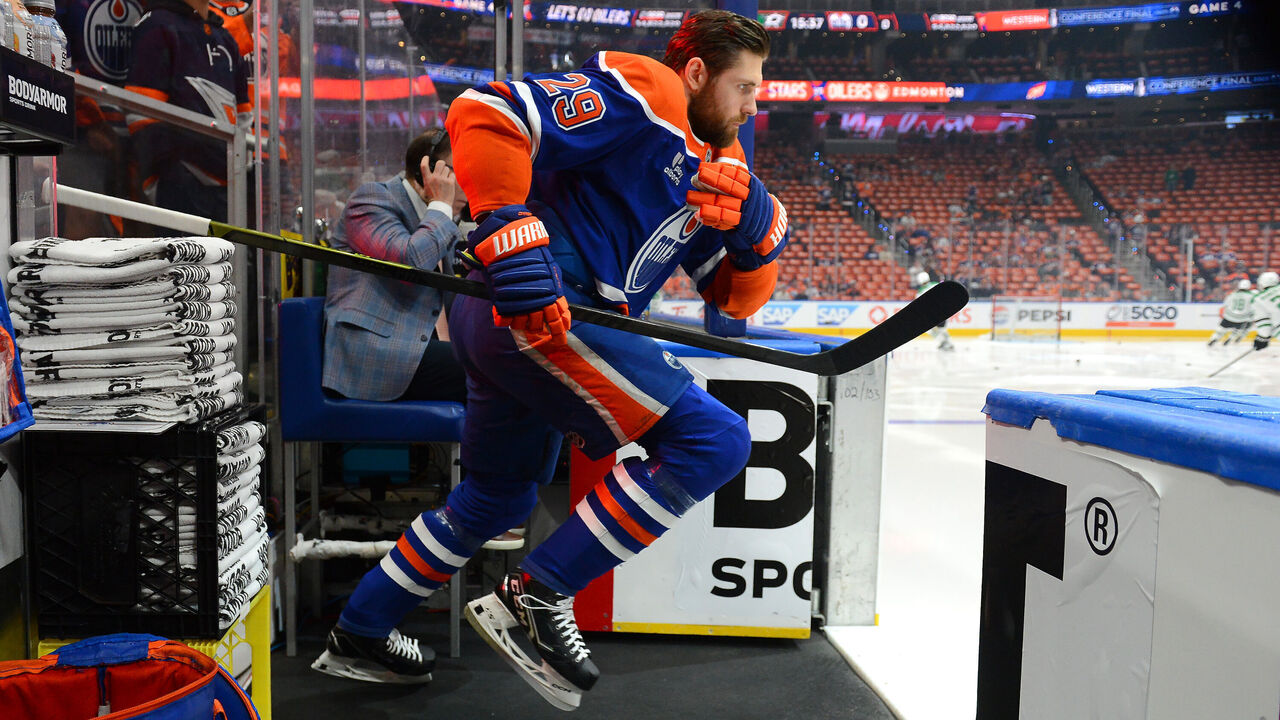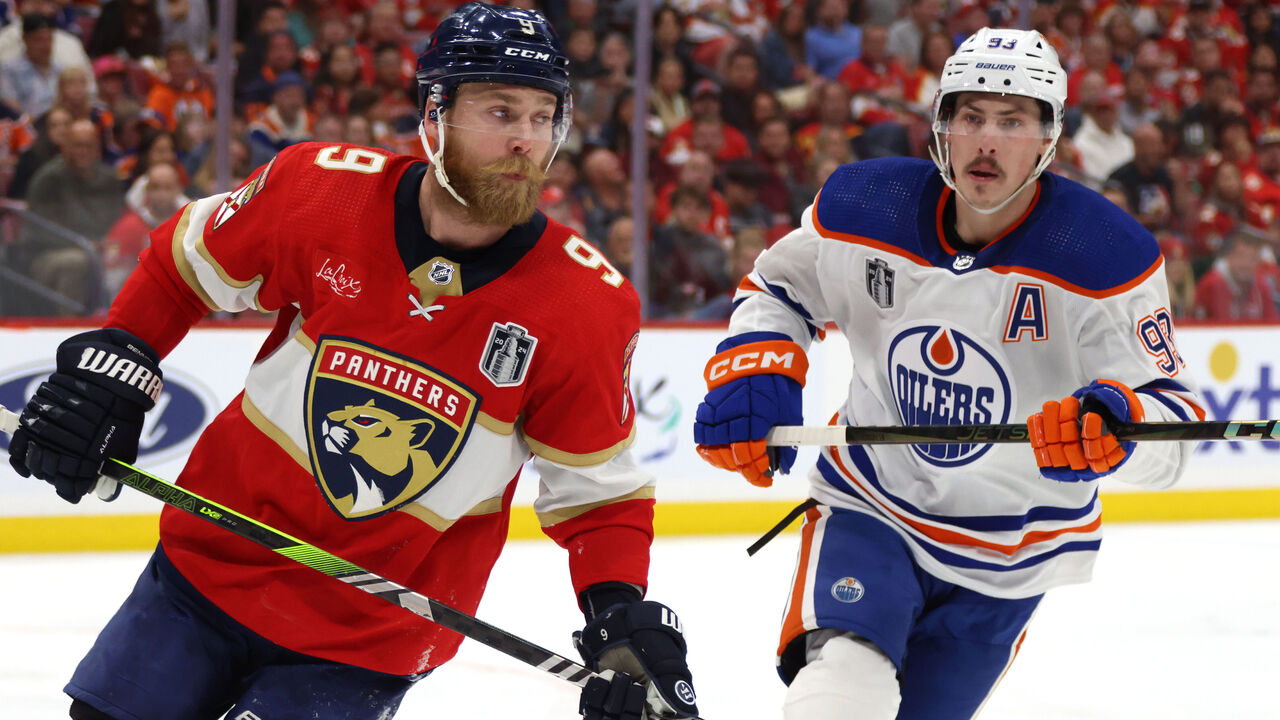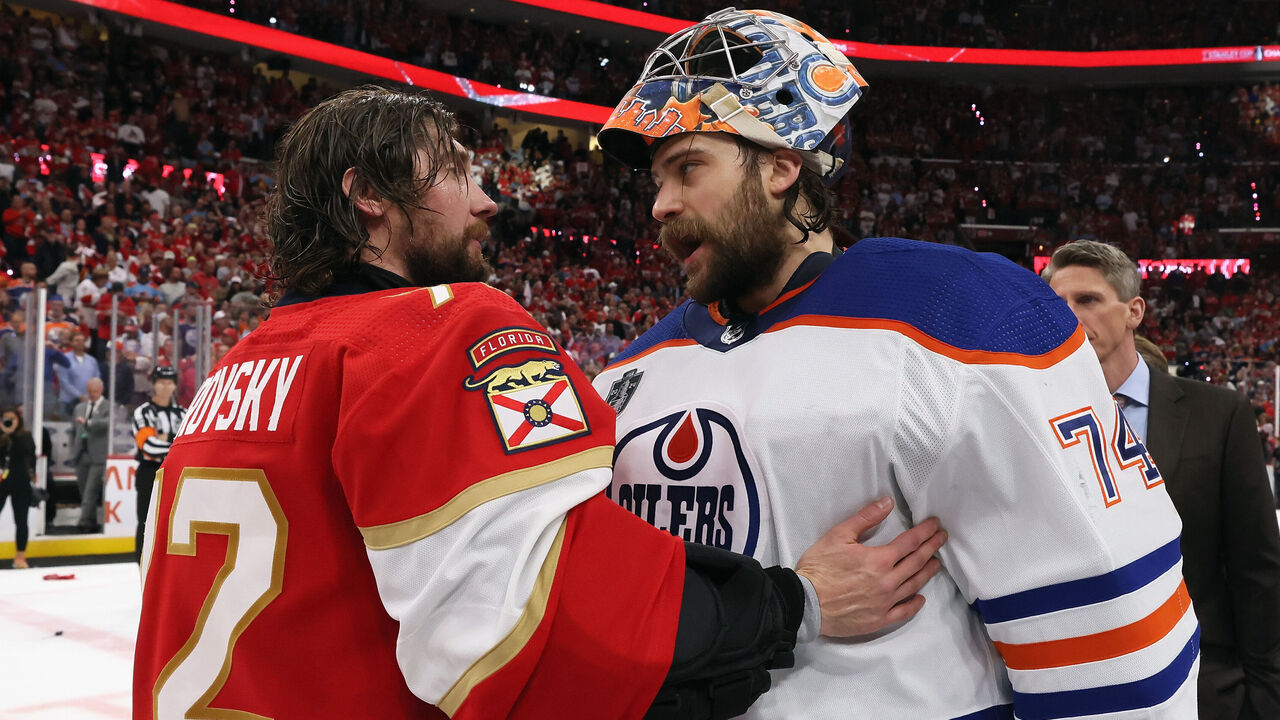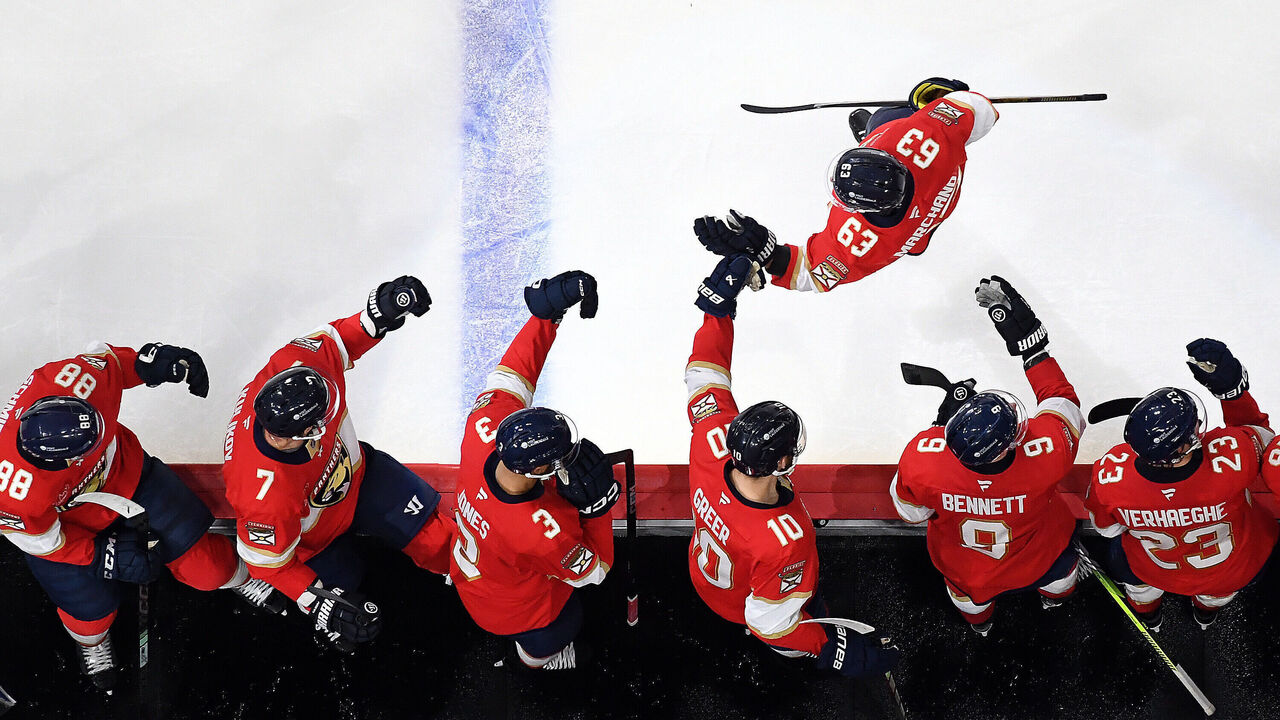7 Oilers-Panthers questions that'll swing Stanley Cup rematch
The Oilers and Panthers are about to clash in another Stanley Cup Final. Their original matchup was thrilling. The sequel promises to be a classic. These questions will decide if Edmonton triumphs or Florida keeps the crown:
Can Draisaitl make an emphatic impact?

Connor McDavid and Leon Draisaitl form a peerless 1-2 punch. Their incredible offensive feats blow open games and tilt close matchups. The German second-line center constantly enhances his reputation as a playoff performer and two-way beast.
Last year’s Cup Final was a rare exception: Hand and rib injuries muted Draisaitl’s influence, and he was held to three assists. Forced to carry Edmonton, McDavid won the Conn Smythe Trophy in defeat.
The Oilers avoided a humbling sweep and almost clinched their first championship since 1990 with a hobbled Draisaitl. Now, he's healthy, comparatively fresh, and raring to dominate. Because of Edmonton's efficient romp through the Western Conference, Draisaitl played two fewer games and 37 fewer minutes from Rounds 1-3 than he did last year.
The Oilers are opening a series at home - and would host a potential Game 7 - for the first time since Round 1 in 2024. They'll own last change and can aim to build momentum at a frenzied Rogers Place before heading to Sunrise. That segment of the series won't faze Draisaitl - he's the postseason leader with 14 road points and bagged most of his goals in the regular season (28 of 52) on enemy ice.
How do blue lines handle divergent attacks?
Both teams have deeper rosters compared to last year, and it shows.
The Oilers are the playoffs' top offensive squad, ranking first in goals for (4.06 per game) and expected GF (4.05), according to Sportlogiq. The Panthers are tops at defending - first in goals against (2.29) and expected GA (2.52).
Edmonton, with its 8.4 scoring chances generated off the rush per game, can skate you out of the building. McDavid, alone, has been credited with a whopping 29 rush chances (Draisaitl is tied with Toronto's William Nylander for second with 17). Florida defensemen can't afford loose gaps, especially in the neutral zone.
The Panthers are a well-oiled forechecking machine that can grind you down. They're elite at disrupting best-laid plans of the defenseman retrieving dump-ins deep in the zone. The first forechecker lays the body as Florida's other skaters stealthily set up behind him to choke off potential breakout opportunities. Oilers blue-liners must be quick and decisive with the puck.
Which second-tier forward stays hot?

Each team boasts bona fide star forwards in McDavid and Draisaitl, and Aleksander Barkov and Sam Reinhart. A rung below - in the overflowing second tier of the forward groups - is an intriguing battle of red-hot players.
Florida's Sam Bennett leads the postseason with 10 goals and has recorded at least one point in 12 of 17 games. The 29-year-old center always elevates his play in the spring - his career points per game rate jumps from 0.49 in the regular season to 0.71 in the playoffs.
Bennett makes his living around the blue paint. Proof: His 19 inner-slot shots rank second to McDavid, plus he accidentally/purposefully delivered an elbow to the head of the opposing goalie in Rounds 2 and 3. A pending unrestricted free agent, Bennett could be playing his final games in a Panthers uniform.
Ryan Nugent-Hopkins is Edmonton's indispensable supporting piece. The plain but effective winger also produces better in the playoffs (0.88 career points per game compared to 0.78 in the regular season). The pressure's on him to continue to cook alongside McDavid and Corey Perry, with another second-tier guy, sniping winger Zach Hyman, out for the series due to injury.
Nugent-Hopkins, the longest-serving Oiler, is fourth in playoff scoring with 18 points (half of which were collected in the conference final) and third among Oilers forwards in ice time, thanks to heavy special-teams usage.
Can Skinner keep up with Bobrovsky?

At one end is a future Hall of Famer with a Stanley Cup, two Vezina Trophies, and a .935 save percentage (including two shutouts) in the Panthers' past 10 games.
At the other is a wildly inconsistent netminder who was demoted to the Oilers' backup role midway through the first round. He returned to the crease in Round 2 after his partner was injured and posted a .944 save percentage (including three shutouts) in the Oilers' last seven games.
Sergei Bobrovsky versus Stuart Skinner is a battle of goalies with different backgrounds who are similarly dialed in entering the Cup Final. The edge still goes to Bobrovsky for his well-rounded skill set, track record, and veteran savvy. But, if Skinner can keep up, Edmonton will be in good shape overall.
Is Edmonton's PK a liability?
A year ago, the Oilers' impenetrable penalty kill allowed one power-play goal - Evan Rodrigues' deflection early in the final - over its last 17 playoff games. This year, Edmonton's been scored on in droves and enters the rematch with the worst kill rate in history (66%) for a Cup finalist.
Prone to slow starts, the PK gave up five multi-goal efforts within the first three games of the Kings, Golden Knights, and Stars series. Dallas almost rallied to tie Game 5 of the conference final after its power play's rapid lateral puck movement freed Roope Hintz, who stood alone at the hash marks, to roof a shot over Skinner.
Florida's as dominant as Edmonton at five-on-five and zaps more man advantages. With an excellent 87.9% kill rate, the Panthers have let in nine fewer power-play goals despite lacking discipline and going down shorthanded 3.41 times per game (Oilers are at 2.94).
At the other end, Matthew Tkachuk's eight power-play points - he's one shy of Draisaitl's league lead - reflect how he can strain a defense from the goal-line area and overwhelm goalies with tips, quick releases, and nice feeds.
Are Florida's leads safe?

If the Panthers are up at intermission, they're winning the game.
That's what the past three postseasons have taught us about the Paul Maurice-coached club. Florida is 20-0 overall and 7-0 in the 2025 playoffs when leading after 20 minutes and 29-0 and 10-0, respectively, when leading after 40.
The Panthers are a stout defensive team with a calm, big-game goalie. They're never satisfied offensively, either, pushing constantly to fatten leads.
However, if one team's suited to reverse this mystifying game script trend, it's the Oilers. Edmonton's armed with the biggest game-breakers on the planet in McDavid and Draisaitl. Each guy can single-handedly take over a game in its late stages like prime Steph Curry. Together, the odds increase exponentially.
The Oilers have been credited with six comeback victories this postseason and famously nearly came back from a 3-0 series deficit in last year's final.
What did Oilers learn from 2024?
When the NHL expanded beyond six teams, repeat Cup Finals became a rarity. Oilers versus Panthers is the fifth immediate rematch to occur in the modern era. It's the first since Sidney Crosby's championship breakthrough.
Early rematches involved famous dynasties. Canadiens juggernauts outclassed the expansion Blues and post-Bobby Orr Bruins. The last stand of the invincible Islanders delayed Wayne Gretzky's ascent to the mountaintop and his own prolonged reign.
Crosby's youthful Penguins teams were big underdogs, but they slayed the 2009 Red Wings by protecting home ice and their own net.
For these Oilers to exact revenge, their offense needs to strike in the coming days. Edmonton failed to set the tone in last year's final, only scored twice over the first eight periods, and almost ran out of time to find Bobrovsky's weak spots and mount a miraculous turnaround.
John Matisz and Nick Faris cover the NHL for theScore.